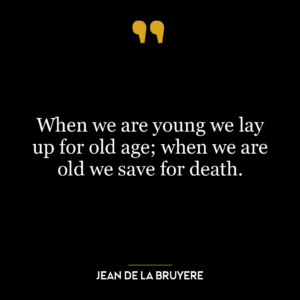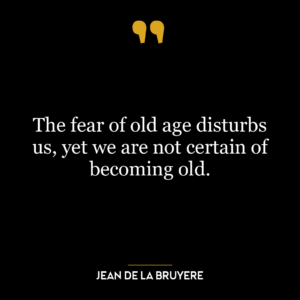The quote “If you’re old, don’t try to change yourself, change your environment” emphasizes the idea that as we age, it may become more challenging to alter ingrained habits, beliefs, or behaviors. Instead of struggling to change oneself, it can be more beneficial to modify one’s environment to better suit their needs and lifestyle.
In a deeper sense, the quote suggests that our environment plays a crucial role in shaping our behavior. By changing our surroundings, we can effectively influence our actions and responses. This perspective aligns with the concept of behaviorism, which posits that behavior is a response to environmental stimuli.
This idea can be applied in various ways in today’s world and personal development. For instance, in the context of elderly care, instead of pushing older adults to adapt to an environment designed for younger people, we can create environments that cater to their specific needs, such as homes with handrails, non-slip floors, and easily accessible facilities.
In terms of personal development, if someone is trying to quit smoking, instead of solely relying on willpower, they can change their environment by avoiding places or people associated with smoking. This reduces the triggers and temptations, making the process of quitting easier.
Moreover, in a work setting, instead of forcing employees to adapt to an inefficient system, managers can change the work environment to boost productivity. This could mean physically rearranging the workspace for better collaboration, or changing the company culture to promote a more inclusive and motivating environment.
Overall, the quote encourages us to look beyond individual efforts when trying to bring about change, and consider how altering the environment can be a more effective strategy.








